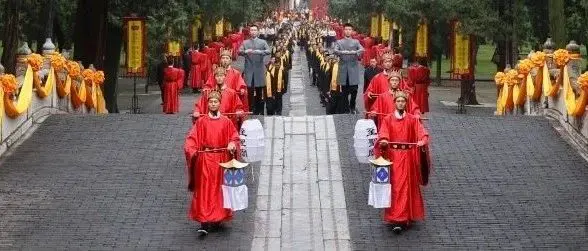How did Confucius and Socrates influence the "background" of Eastern and Western philosophy?

We value classical studies because we value the origins of world civilization. Reporter from China News Service, He Shaoqing.

Over two millennia ago, during the "Axial Age," Confucius and Socrates, located at opposite ends of the Eurasian continent, jointly left humanity with invaluable spiritual wealth.
"What would the conversation be like if Socrates met Confucius?" is an interesting topic on overseas social media. Greek scholar Christos Kavvadias even wrote a book titled "When Socrates Meets Confucius: A Cross-Time Dialogue Between Greek and Chinese Thinkers."
What do Confucius and Socrates have in common? How have they profoundly influenced the "background" of Eastern and Western philosophy? How does the translation and study of classical works promote mutual learning between Eastern and Western civilizations? Professor Xiong Lin, Director of the Social Sciences Research Office at Sichuan University, Department Chair of the Philosophy Department at Sichuan University, and translator of the Chinese-Greek parallel text "Complete Works of Plato," recently interpreted these questions in an exclusive interview with China News Service's "East-West Question" upon invitation to the first World Congress of Classical Studies.
The following is a summary of the interview transcript:
Reporter from China News Service: When did philosophy originate, and what is its essence? Did China have philosophy before the term "philosophy" was introduced to China?
Xiong Lin: The first half of the word "philosophy" means love, and the second half means wisdom. It is said that the first person to use this term was the ancient Greek philosopher Pythagoras. Pythagoras believed that only gods are wise, while humans can only pursue wisdom, love wisdom.
In Greece, philosophy underwent two stages. One stage was asking "Where does this world come from, and where do I come from," which we call cosmology. The other stage, initiated by figures like Parmenides and crystallized by Socrates, was a way of thinking and questioning that asked "What is it, and how is it," as well as reflecting on this very mode of thinking and questioning itself.
The term "philosophy" did not originally exist in Chinese; only the characters "哲" (wisdom) and "学" (learning) were present. In the late 19th century, the Japanese scholar Nishiki Naoakira, after deliberation and selection, finally translated the term as "哲学" (philosophy). Subsequently, the term "哲学" was introduced into China and has been in use ever since.
When the term "philosophy" was introduced to China, it was naturally assumed that China also had philosophy, and traditional Chinese thought was organized, interpreted, and discussed in a philosophical manner, such as Hu Shih's "Outline of the History of Chinese Philosophy" and Feng Youlan's "History of Chinese Philosophy." However, some questioned whether ancient China truly had philosophy. One view holds that since the term "philosophy" is a loanword, there was no philosophy in China before its introduction.
In fact, the origin of an idea—who proposed it and where it came from—is distinct from the content and significance it embodies. What truly matters is whether we are willing to embrace this idea and whether it becomes a part of our own lives.
As long as the Chinese think in a philosophical manner today, China is philosophical. As long as we approach the classics of Chinese history with a philosophical method and spirit, these classics will manifest themselves in our view as philosophical.
On the occasion of the 200th anniversary of Karl Marx's birth, visitors view the original manuscript of Marx's "Economic and Philosophical Manuscripts of 1844." Photo by reporter Jia Tianyong, China News Service.
Reporter from China News Service: As great thinkers from the Eastern and Western "Axial Age," what commonalities do Confucius and Socrates share?
Xiong Lin: The German philosopher Karl Jaspers proposed the concept of the "Axial Age" in his book "The Origin and Goal of History," referring to the cultural breakthroughs that occurred simultaneously in regions such as China, the West, and India between the years 800 BCE and 200 BCE.
The three sages of ancient Greek philosophy during the "Axial Age" are Socrates, Plato, and Aristotle, and they are often compared to Confucian scholars Confucius, Mencius, and Xunzi of the pre-Qin period in China.
Confucius spent his life expounding but not writing, and Socrates also left no works authored by himself. Confucius's thoughts are primarily embodied in The Analects, which was compiled by his disciples and their students. Socrates's thoughts are also mainly recorded in dialogues featuring Socrates as the protagonist, written by Plato.
Confucius and Socrates were both practitioners of their own thoughts, not mere theorists. Confucius traveled through various states throughout his life, describing himself as "worn out like a stray dog," because he hoped to practice his thoughts and realize his ideals. Socrates even faced death calmly in the process of practicing his own thoughts.
Reporter from China News Service: How did Confucius and Socrates influence the "foundation" of Eastern and Western philosophy?
Xiong Lin: Although Aristotle said Socrates was the first to "seek the universal" and "attempt to define," Cicero of Rome believed that Socrates was the first to call philosophy down from the heavens to earth, compelling it to think about the good and evil of individuals and the city-state. This latter evaluation essentially means that Socrates shifted the early philosophers' focus on nature to an emphasis on human life and society, which can also be understood as a transition from early natural philosophy to practical philosophy.
Plato, a student of Socrates, further developed Socrates' ideas. Therefore, it is argued that "the entire history of Western philosophy is nothing more than a footnote to Plato's thoughts." Aristotle, Plato's disciple, became a polymath in the West. The path of rationalism initiated by these three profoundly influenced later Western philosophy.
Chinese philosophy has always leaned more towards ethics and practical philosophy from the beginning, and Confucianism is no exception. Sima Tan, the father of Sima Qian, once stated that although the various schools of thought in the pre-Qin period differed from each other, their purpose was all for "governance"—for the governance of the state, the governance of society, and of course, the governance of people.
Confucius, as the initiator of Confucian thought, to some extent, set the tone for Confucianism, emphasizing reflection on the spiritual aspects of human beings and the society composed of people.
The grand ceremony to commemorate Confucius during the Xin Chou year was held at the Confucius Temple in Qufu, Shandong. Photo by reporter Sheng Jiapeng from China News Service.
Reporter from China News Service: Since when did you start retranslating the complete works of Plato, and what is the current progress? How does the translation and research of classical works promote the mutual learning between Eastern and Western civilizations?
Xiong Lin: From the beginning of the century, the German-speaking world, the English-speaking world, the French-speaking world, and others began to systematically organize Plato's original Greek texts and translate them into their respective modern languages, publishing a large number of single volumes and complete collections. As early as the late Qing Dynasty and the early Republic of China, Chinese scholars began to translate and introduce Plato's works.
In the year, I was invited by the Commercial Press of China to embark on a ten-year project to translate and publish the Chinese-Greek bilingual "Complete Works of Plato," based on the authoritative and meticulously edited ancient Greek text (Oxford Classical Edition). The Chinese-Greek bilingual "Complete Works of Plato" includes all extant works of Plato, comprising nine tetralogies and one pseudepigrapha.
Years have passed, and I have completed and submitted translations of Plato's works, with several volumes published. But now it seems that ten years will certainly not be enough to complete the translation of "The Complete Works of Plato." Translation is not merely the conversion of languages; it is carrying one's own world to meet the author's world, an emotional investment and a certain sense of life commitment, reflecting the translator's creativity.
Translating the Complete Works of Plato requires not only consulting the original Greek text but also referencing and utilizing the translations and research achievements of Plato's works in various languages from around the world over the past two hundred years. In addition to the editorial and critical advancements in the West regarding Plato's writings, translators from different eras and regions, both Eastern and Western, have varying understandings of Plato's works, resulting in different expressions and thoughts in their own languages. These works themselves are also testimonies and epitomes of the exchange and mutual learning between Eastern and Western civilizations.
Not only will Western classics continue to be translated into Chinese, but Chinese classics will also be translated into various languages by generations of Western scholars. Because classics are works that have been filtered through the test of thought and time, understanding the origins of a civilization is essential to better comprehend the diverse civilizations of today.
From a philosophical perspective, only humans have history, because only humans plan their lives with the future in mind. Humanity must move towards the future, which is why its past becomes a mirror. We value classical studies because we value the origins of world civilization. This makes the first World Conference on Classical Studies—a dialogue that brings East and West back to the origins of civilization for mutual learning—even more significant.
Interviewee Profile:*
Xiong Lin. Photo by Zhang Lang, reporter from China News Service.
熊林(溥林),四川大学社会科学研究处处长、四川大学哲学系系主任。中国人民大学哲学系哲学博士,香港汉语基督教文化研究所访问学者,德国海德堡大学神学院访问学者,兼任中国教育部高等学校哲学类专业教学指导委员会委员、中华全国外国哲学史学会常务理事、四川省社科联副主席、四川省哲学学会会长。目前主要研究方向:古希腊哲学、德国哲学。
Title: "Xiong Lin: How Confucius and Socrates Influence the 'Background' of Eastern and Western Philosophy? Eastern and Western Questions in Classical Studies" Text Editor: Wang Suning Image Editor/Poster Design: Cui Chuqiao Layout: Liang Jing Review: Wei Yuan Editor: Song Fangcan
[
Greek scholar Stathis: Isolating civilizations is outdated!
](http://mp.weixin.qq.com/s?__biz=MjM5NDI2MDc5NA==&mid=2659527272&idx=1&sn=e719c7ead1c0fbd062ea8c6d24b0d2d0&chksm=bdfbf83d8a8c712b4c88aec973a1e2a7bdc30f6725a9ff91bce8c6fb3face18643345688ea5e&scene=21#wechat_redirect)
[
Wu Fei: Studying classical studies is not for the purpose of reviving the past.
](http://mp.weixin.qq.com/s?__biz=MjM5NDI2MDc5NA==&mid=2659527272&idx=2&sn=aaa07c53da96539ad1e98bc1465e93de&chksm=bdfbf83d8a8c712b4d021c9dfdaf0ce26bc2d296d06fc87443f6294d6a658746a89a6c29cc33&scene=21#wechat_redirect)
[
Why did a Chinese bamboo bridge win an international award?
](http://mp.weixin.qq.com/s?__biz=MjM5NDI2MDc5NA==&mid=2659526805&idx=1&sn=480fe2bf55d47508b1630fab38c4fa76&chksm=bdfbfac08a8c73d678cbc1b146ac565ec7e162699004a8b255f3033775ece81baa4429fa4768&scene=21#wechat_redirect)
